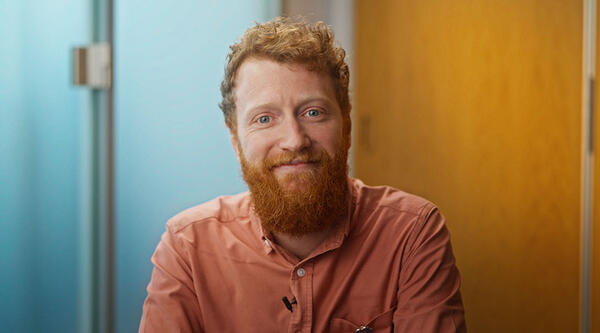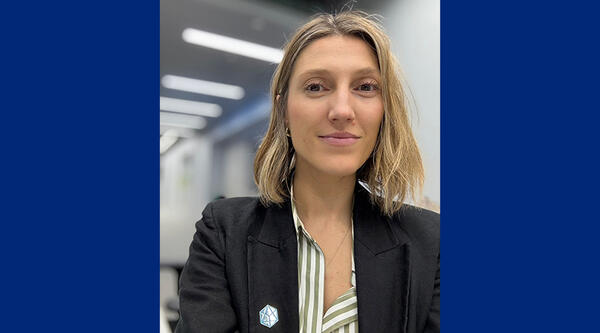Maximising the UK Dementia Research Moonshot for people affected by dementia
Find out what the ‘Dementia Moonshot’ is, and our five priorities to ensure the current government makes the most of the funds they’re pledging towards dementia research.
What is the Dementia Moonshot?
As part of the Conservative government's election manifesto, they pledged to double dementia research spending over the next decade through the delivery of a 'Dementia Moonshot'.
In practice, this should mean an extra £800 million over ten years for dementia research.
This should be a major step in the right direction. We now need to ensure these funds are committed to and well spent.
Dementia is one of the greatest health challenges facing society, both in the UK and around the world.
Of the top ten causes of death, dementia is the only one that can’t be cured, stopped or even slowed down.
By 2040, it is estimated dementia will cost the UK economy £94.1 billion.
What is Alzheimer's Society calling for?
Alzheimer’s Society is calling for a broad approach to research. We must fund research that moves us towards potentially life-changing treatments and diagnostics of the future.
But we must also address the challenges people living with dementia and those who care for them face today so they can live better with the condition as it progresses.
We have established five priorities where the government’s Dementia Moonshot investment can make the biggest difference for people affected by dementia, now and in the future:
1. Training the dementia researchers of the future
Support for clinicians, PhD students and people at the early stages of their career to grow the dementia research field, ensuring the best minds are committed to dementia research.
2. Research to ensure the early detection and diagnosis of dementia
Great progress has been made in recent years to develop a simple, accurate diagnostic test for the different types of dementia. To ensure people affected by dementia feel the benefits of this pioneering work, we must see renewed funding for research to fully validated a new diagnostic test and develop a mechanism to ensure that it can then be rolled out into the clinic.
3. Transforming care through technology for people with dementia
Dedicated funds to support the design and use of technologies that enable better prevention, diagnosis, management and care of the dementia. Dedicated funds to support the design and use of technologies that enable better prevention, diagnosis, management and care of the dementia.
4. Making research a reality through Centres of Excellence in Dementia Research
Alzheimer’s Society’s Centres of Excellence in care research have been integral to understanding what the best dementia care looks like. This infrastructure and density of expertise has demonstrated real impact for people affected by dementia. The Moonshot funding should expand this highly successful model of ‘Centre of Excellence’ in key areas of dementia research.
5. Understanding the underlying causes to find a cure
Additional investment for fundamental brain research, including as part of the UK Dementia Research Institute, to understand the causes of dementia towards new targeted treatments and forms of diagnostics.
Striking the balance
These ambitious plans address the prevention, diagnosis, treatment and care of dementia and have the potential to impact the disease at all stages.
The attention given to dementia now is more than ever before. Alzheimer’s Society will work to make sure that this time, we change the course of dementia forever.
Fiona Carragher, Chief Policy and Research Officer at Alzheimer’s Society, said:
'There are things to be positive about in dementia care and thanks to research and a commitment to implement findings some things are improving. But there’s still a long way to go to achieve the level of care people living with dementia deserve.
'The government’s ‘Dementia Moonshot’ is a big step forward. However, it’s crucial that they allocate the funding appropriately.'
'Research towards a biomedical cure is important but, at the same time, so is addressing the needs of people with dementia today and the care they require from the NHS and social care.
'Great progress has been made on care and, with more research, we can build on that work, improving the lives of people living with dementia and decreasing the cost of care to the NHS. To do this, we need to increase the number of clinical research academies and researchers but that can only be done if the government allocates funds accordingly.
'It is crucial that the government not only work on developing effective treatments and finding a cure, but, also, ensuring the funding is there to continue to explore ways we can help individuals with dementia live well.
'We owe it to the 850,000 people with dementia in the UK to give them the best care possible, so they can have the highest quality of life right now.'
Research and the social care crisis
Today, there is a crisis in dementia care. Alzheimer’s Society is campaigning for more funding for social care to improve the lives of people with dementia.
Research is a crucial part of this and has already driven improvements in people’s lives.
- Dementia diagnosis rate has doubled from 33 per cent to 66 per cent since 2017.
- The use of harmful anti-psychotics in people with dementia has halved.
- More people are prescribed anti-dementia medications.
- We have discovered new ways of providing support for people with dementia and their families that can improve quality of life and save money for the health care system.
Although progress has been made, research focusing on health and social care challenges is lacking and the positive results we have seen already must be implemented across the country.
What research are we funding?
Alzheimer's Society is the largest charity funder of dementia care research that is changing live. It aims to understand the underlying causes of the condition, improve diagnosis and care, identifying ways to prevent dementia and search for a cure.
This page was originally published in February 2020, and last updated on 23 March 2021






